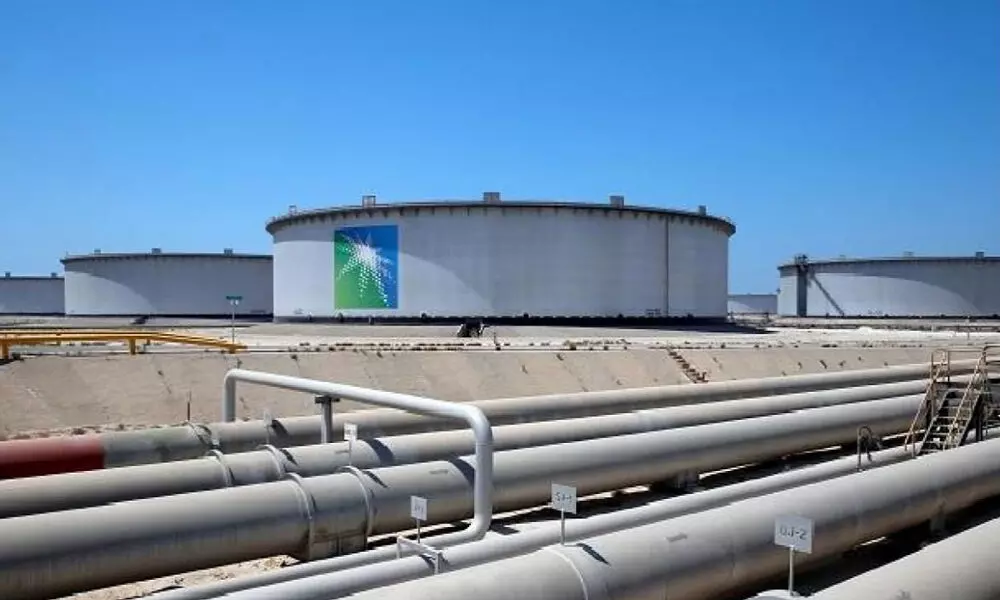Who will buy 1% stake in Aramco?
Splurging almost $20 bn on a low-yielding, low-liquidity stake carrying no influence in a State-owned oil company seems tough to justify these days
image for illustrative purpose

Five years after Crown Prince Mohammed Bin Salman ventured that "in 2020 we can live without oil," he is, once again, hawking Saudi Arabia's oil champion to raise funds. In a recent, sweeping interview with Arab News, he teased the potential sale of 1 per cent of Saudi Arabian Oil Co., or Saudi Aramco, to a "huge company" in an oil-importing country.
Who would pay $19 billion for that sliver of the Saudi dream? The obvious candidates are in Asia, where the bulk of Saudi Arabia's oil exports flow. Chinese sovereign wealth money, as well as the country's own national oil companies, are said to be in discussions to take the stake, according to a Reuters report. An alternative scenario involves reviving a deal whereby Aramco takes a stake in the energy division of India's Reliance Industries Ltd. in return for stock instead of cash - although, as my colleague David Fickling writes, that would seem at odds with where Reliance is going.
There is no clear commercial reason for an oil company to actually buy 1 per cent of Aramco. At the best of times, minority stakes in national oil companies come with questionable benefits (unless that stake is deeply discounted). One prominent example, BP Plc's roughly 20 per cent stake in Rosneft Oil Co. PJSC, is itself the product of the U.K. major's long and drama-filled dalliance in Russia's most strategic sector. Beyond a dividend and notional share of production, it's hard to see what that stake really brings; harder still to see the ultimate exit.
In Aramco's case, the buyer would gain a minimal share of a company embedded even deeper in the fabric of its home country - and getting deeper still if the prince's recently-announced "Shareek" program is anything to go by. The dividend yield of less than 4 per cent is barely above that of long-term Saudi government bonds (and far below Rosneft's 7 per cent), a function of Aramco's being listed only on the domestic exchange. The latest quarterly results, released Tuesday, showed that, at $60 oil, free cash flow still didn't quite cover that dividend. In a world where investors are demanding money back from oil companies, or pushing for greener options, splurging almost $20 billion on a low-yielding, low-liquidity stake carrying no influence in a State-owned oil company seems tough to justify.
This is where the strategic part of the pitch usually takes over, justifying the outlay in terms of nods and winks rather than straight value. This can have some logic to it. When several western majors bought into China's privatisations of its big oil companies two decades ago, part of the rationale was winning entry to a rapidly growing market.
This is less clear in Aramco's case. What countries like China want most is Saudi Arabia's oil. And with demand growth centered overwhelmingly in Asia, Saudi Arabia must compete to sell it to them anyway. In his interview, MBS made the striking assertion that the US "will not be an oil-producing country in 10 years." That might constitute a bold counterargument were it not just wishful thinking. It is Saudi Arabia that needs to secure customers - hence its quite rational push into foreign downstream ventures and talks with companies such as Reliance - rather than customers needing to ante up for supply.
In reality, buying 1 per cent of Aramco like this would largely be a political act. Ties between China and Saudi Arabia, which kicked off with a sale of missiles in the 1980s, have deepened since, fueled by China's thirst for oil and, more recently, its geopolitical ambitions. Just as Saudi Arabia's desire to transform its economy lures consultants by the planeful, so it also represents a giant target for China's infrastructure-heavy Belt and Road Initiative. In that context, $19 billion starts to look like a mere downpayment on a subdivision in NEOM.
For Saudi Arabia, the attractions are obvious. The original plan for a global IPO foundered on the clash between political imperatives and market realities. Lately, Saudi Arabia has taken a leaf from the United Arab Emirates' book and started pitching bits of its energy sector toward specific types of buyer, with better results. China represents a major customer, potential source of elusive foreign direct investment and geopolitical hedge against an increasingly ambivalent US It helps, too, that President Xi Jinping isn't likely to take MBS to task on human rights.
Yet courting Beijing also comes with costs. Above all, Riyadh must expand its options but avoid antagonising Washington too much at a time of deteriorating Sino-US relations. One can imagine the reaction in Congress if, say, Huawei Technologies Co. Ltd. were hired to wire up a new smart city in the desert.
Disentangling from the US relationship is inevitable to some degree, but the process is fraught with risk. For all its complications, the US remains the preponderant military power in the region and, via its Navy, de facto guarantor of those oil tankers sailing eastward.
China is many years away from projecting that level of force in the Middle East, assuming it would even want to. If you think the energy transition is a tall order, it pales in comparison to Saudi Arabia's everything transition. (Bloomberg)

